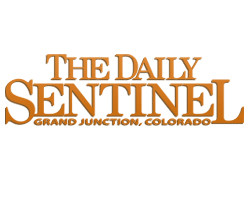Feds Approve Coal Mine's Expansion in Roadless Area

By Dennis Webb
March 19, 2019 - A federal agency has approved a proposal to let the West Elk Mine produce coal from beneath some 1,700 acres of national forest roadless acreage in Colorado's North Fork Valley.
The Office of Surface Mining Reclamation and Enforcement, or OSMRE, has approved a mining plan modification for the mine, owned by Arch Coal. The company still must obtain approval by the Interior Department assistant secretary for land and minerals management, but Jeremy Nichols with the conservation group WildEarth Guardians said he expects that approval probably will be issued imminently.
Conservation groups including WildEarth Guardians continue to challenge the expansion in court. A federal district court judge ruled against them in August, but they are appealing the decision.
West Elk employs some 300 people and is the last coal mine still operating in the North Fork Valley. The enforcement office estimates that the expansion would add about two years to the mine's life and allow for the mining of 10 million tons of federal coal.
The mine's underground operations would have surface impacts in the Sunset roadless area because of the need to drill holes to vent methane liberated during mining. Venting helps protect miners from the potential of underground explosions.
In Colorado, a state-specific national forest roadless rule is in effect, rather than the 2001 national roadless rule. It includes a North Fork Valley exemption for coal mine operations to build temporary roads.
The West Elk expansion would entail the use of 38 methane vent drill pads and about seven miles of roads on federal land, and another five pads and 1.5 miles on mine-owned land.
In 2014, a federal judge determined the environmental review for the mine's expansion and the North Fork coal exemption was inadequate. Conservationists are concerned about the greenhouse gas impacts from the eventual burning of coal that would be mined, and from the high volume of venting to the atmosphere of mine methane, a potent greenhouse gas.
The West Elk Mine is the largest single industrial point source of methane emissions in Colorado.
Following the 2014 ruling, the Forest Service did further environmental analysis leading to reinstatement of the North Fork roadless exemption and again allowing for the Bureau of Land Management to approve two West Elk Mine coal lease modifications in the roadless area.
The state Division of Reclamation, Mining and Safety also has permit authority over the mine expansion. In its action, the Office of Surface Mining and Reclamation Enforcement adopted the Forest Service's previous environmental review pertaining to the leases as its own, finding that the mine plan submitted to the state was similar enough to what the Forest Service analyzed for that analysis to suffice.
Nichols said the enforcement office's action came as something of a surprise, and he feels the agency is failing to fulfill its responsibility to look at environmental impacts. He said the Forest Service and BLM couldn't fully analyze impacts when they conducted their reviews because it was too early in the process, and the mine plan approved by the state has details on vent wells and roads that merit further analysis by the enforcement office.
"We definitely feel like they're cutting corners," he said.
In its written decision, the enforcement office recognized differences in pad locations between what the Forest Service analyzed and the plan submitted to the state.
"Therefore, OSMRE conducted a review of the actual sites to ensure that no new information or significant impacts were discovered," it said.
Nichols said his group will be weighing the possibility of bringing a new legal challenge involving the federal agency's approval.
An Arch Coal spokesman could not be reached for comment Monday.
Arch Coal already has done some road-building in the roadless area so it could drill exploratory wells to assess the underlying coal seam.
The mining enforcement office says the mine's permit provides for post-mine land uses of rangeland and wildlife habitat, a plan that will continue with the permit modification. The state Division of Reclamation, Mining and Safety holds a $14.4 million bond to ensure reclamation can occur if the company isn't able to carry out its legally required obligation.

